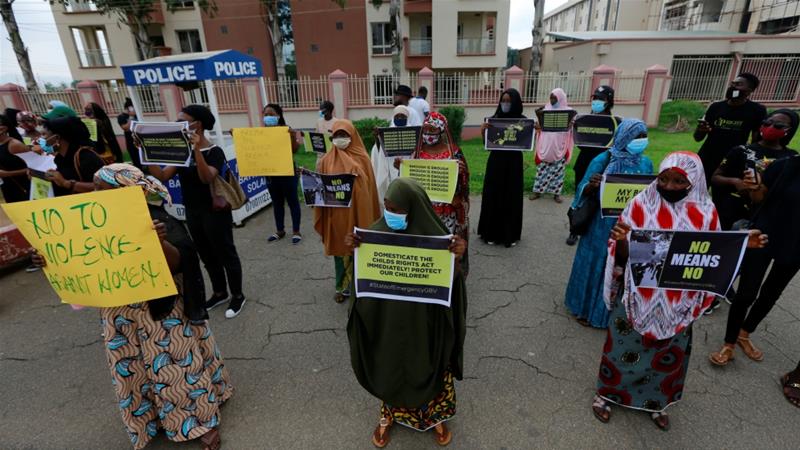
These are not the best times for Nigeria and Nigerians. The state of anomie doesn’t give room for any form of joy or smiles as melancholy has gained a strong foothold nationwide. Nigeria perpetually maintains perennial rankings in the bottom quartile of global socio-economic and political developmental indices. Coming on the heels of two key reports that labeled Nigeria as the poverty capital of the world and one of the most miserable places on earth, it would not be out of place to say the country is on a tailspin. The hopelessness is so palpable and conspicuous that its strong whiff is everywhere. The most inexplicable thing that beats logic hollow is the open acknowledgement of helplessness, preponderance of fatalism, seemingly overt resignation to fate and tacit admission of defeat by both government and citizenry alike in the face of the myriad quagmires of variegated shades and sizes assailing the nation.
The despair of our time includes the actual threat of war, increasing polarization of wealth, rising incidence of kidnapping, banditry and armed robbery, ineffective electoral system, mounting youth restiveness and restlessness, resurgence of Boko Haram terrorists, marauding gangs of bandits and killer herdsmen, systemic failure of government at all tiers, emerging virulent strain of democracy, worsening human development indices, failing educational systems and standards, growing lack of confidence in the judiciary, restructuring and the escalating pace of insecurity nationwide. Others include inadequate electricity supply, pipe borne water, social /health services, employment opportunities, road network etc. Despite the flaunting of socio-economic successes on all fronts by the present administration, a professor said the purported landmark achievements are invisible to a majority of Nigerians. Another observer lamented that poverty and despondency bestrides Nigeria’s terrain like a foreign invading and conquering army
Quite auspicious is the complete evisceration of the last vestiges of social solidarity, expanded concept of kinship and brotherhood that once embodied Nigeria’s humaneness. The torrents of depressing news and incidents all over the country give impetus to the growing perception that the nation has lost its soul. Already, a critical mass of Nigerians mostly youths have already written off Nigeria. Look at the high proportion of people who are hell bent on fleeing the country by either road or ship. Also check out the large number of people applying for visas at various embassies and departing MMIA on a daily basis. In 2017, an International Organization for Migration report said that the majority of the potential sex trafficking victims arriving in Italy by sea are Nigerian women.
Is humane recovery ever possible on our benighted shores; are we desirous of change; are we ready to change? What can be done to halt Nigeria’s present descent? What will pull Nigeria out of this disheartening nadir? Is there anything meaningful that the average Nigerian can do? Like in the game of thrones, the odds are clearly stacked against us as a people and as a nation. The proclivity to rescue Nigeria from the jaws of the mythological kraken is dampened by our collective docility in the face of overwhelming difficulties at all phases, frightening psychological, physiological and rights abuses and atrocious existence in very onerous and heart-wrenching circumstances. What is happening is that Nigerians are clearly detached from reality by living a lie, exuding a false feeling of sanity and pretending that all is well in the face of overt dysfunction and chaos. The truth is that Nigeria is suffering from a terminal ailment and is on the verge of slipping into life support mode.
The year 2020 represents an opportunity, a time for all of us to act fast to save Nigeria. Nigerians who love peace, equality and justice should comprehend the inevitability of embarking on a serious and comprehensive overhauling of our individual mindsets and all our systems and to organize against pernicious politicians, civil/public servants, corporate hawks, contractors and other people who have virtually held Nigeria by its jugular for decades. We should realize that only a united and organized mass of Nigerians across ethnic, religious, cultural and political divides can propel Nigeria to its desired and deserved heights. Nigerians must come together and start thinking of rising above primordial, ethnic, religious, mercantile and other sentiments in order to generate the required constructive social change that can turn this country around and create a fairer, more just, law abiding, open and more caring society.
(Photo Credit: AlJazeera / Reuters / Afolabi Sotunde)
